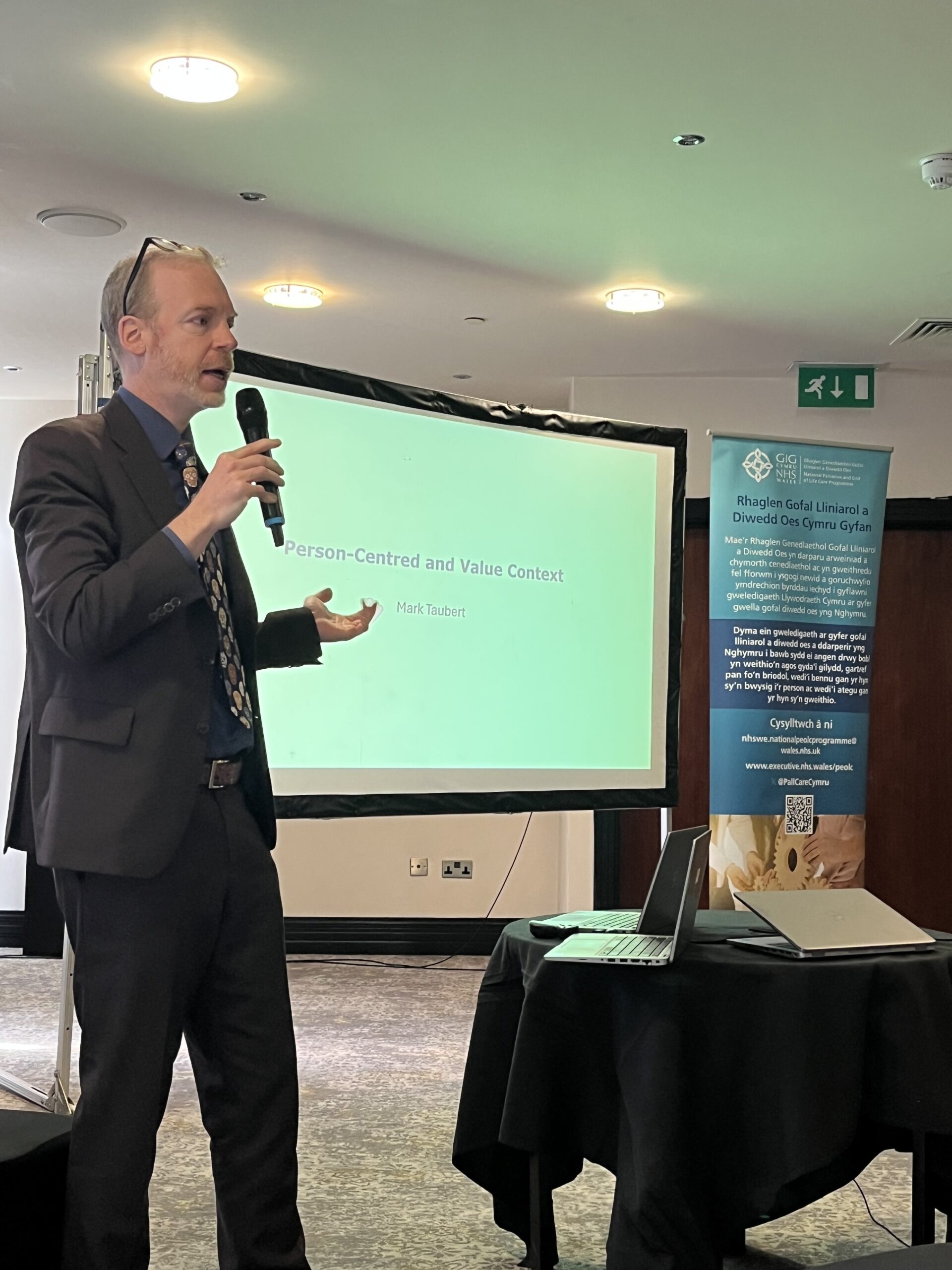**NEWS**
A national peer forum event for Wales with regard to Future Care Planning was held in Cardiff on the 27th March 2025.

The event saw key stakeholders and professionals, working in the areas of palliative, end of life care and advance care planning, get together with policy makers, Welsh government representatives and volunteer groups, to debate new ideas and definitions. The event concluded with an interactive workshop that asked key questions about the next 5 to 10 years of advance & future care planning delivery, and how the ambitions as set out in the strategy paper from 2024 could be met.
Baroness Ilora Finlay talked about the importance of clear language when communicating wishes, and eliciting what matters most to the patient and those close to them. She outlined how ‘future care planning’ is a far clearer term than anticipatory, advance, or advanced, and that this has been backed up by public engagement feedback. Finlay also outlined some of the inherent dangers in potential law changes, for instance assisted suicide, and how this may become a significant setback for how we hold open conversations about better end of life care planning with our patients.
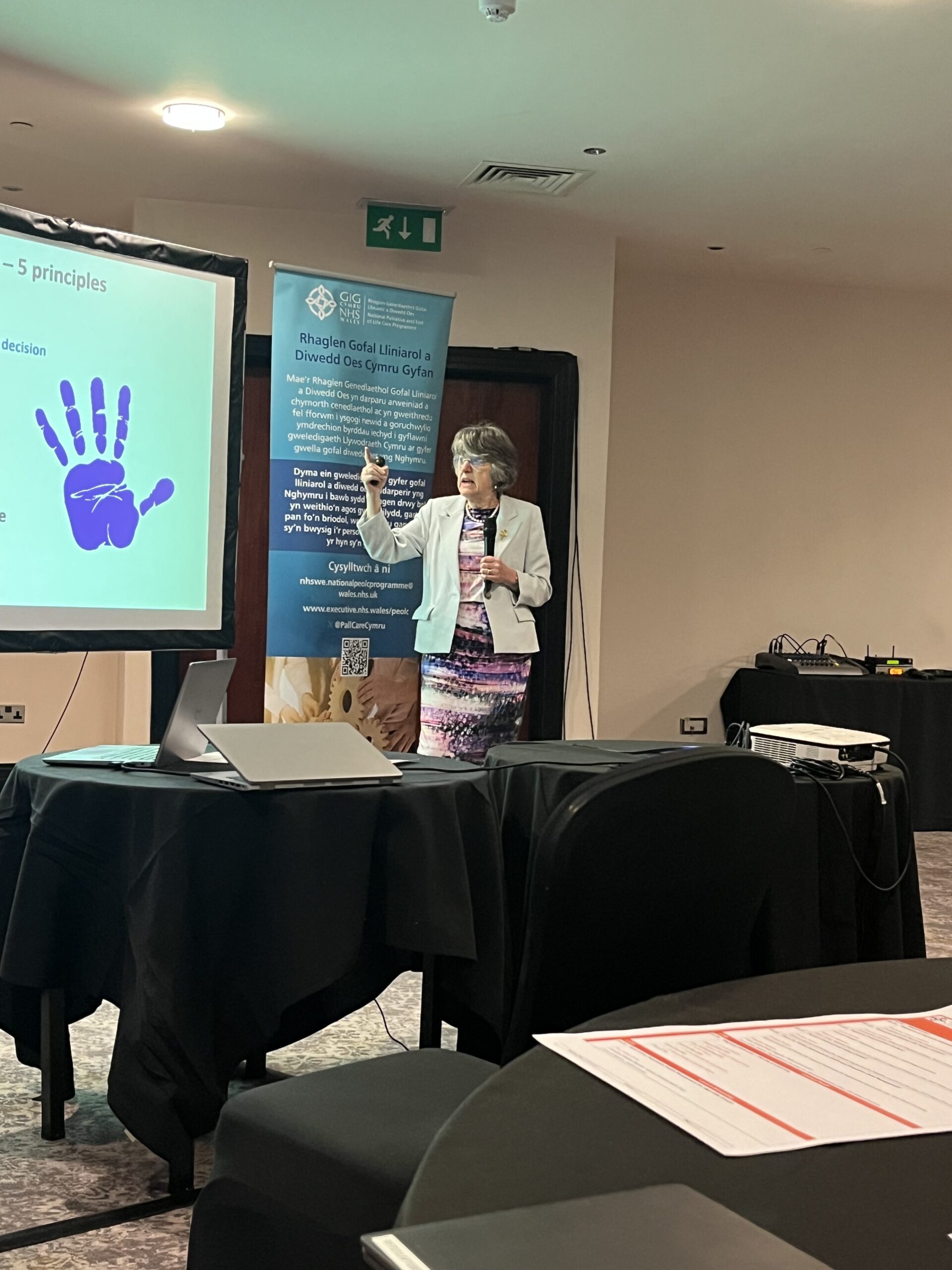
Other talks and Q&A sessions focused on policy and integration into Welsh Government and NHS Wales workstreams, especially within Digital Health and Care Wales (DHCW). As part of the Six Goals of Care, as well as the Healthier Wales report, the agreed tenets of Future Care Planning align with many of the existing ambitions.
Rhiannon Matthews, Professional Advisor for Frailty and Integrated Systems with Welsh Government, outlined some of the ways this will work.
Matthews said: “Implementing Future Care Planning for our ‘rising risk’ and ‘at risk’ populations is now a national priority (Further, Faster / 50 Day Challenge) for the Health and Social Care Group in Welsh Government. Today marks an exciting step in taking this work forward.”
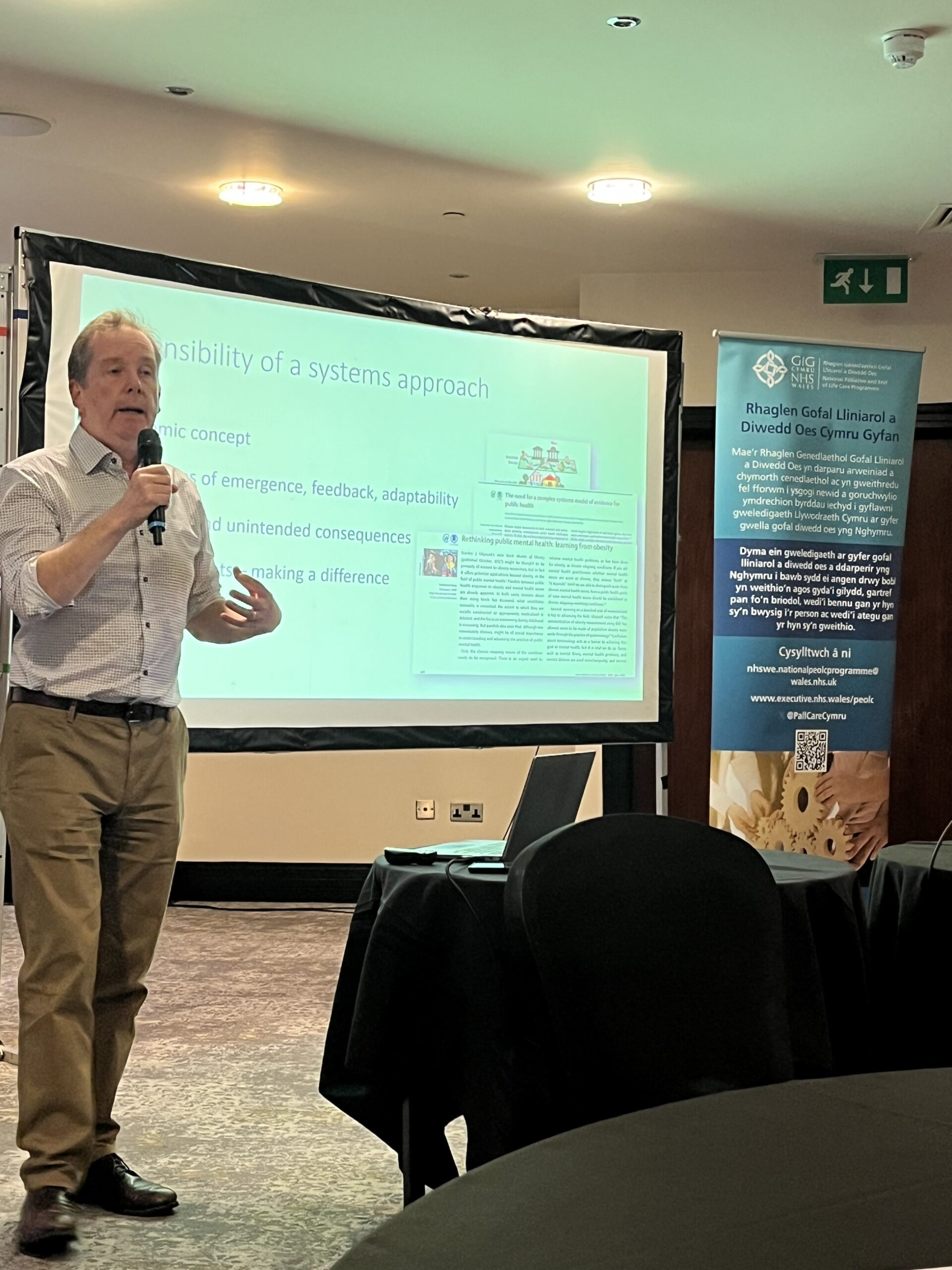
Digital integration and better and more effective use of data was also a key priority in Prof Anthony Byrne’s talk. Byrne is a palliative care consultant and researcher, and has worked on data-driven population health management for high-risk groups.
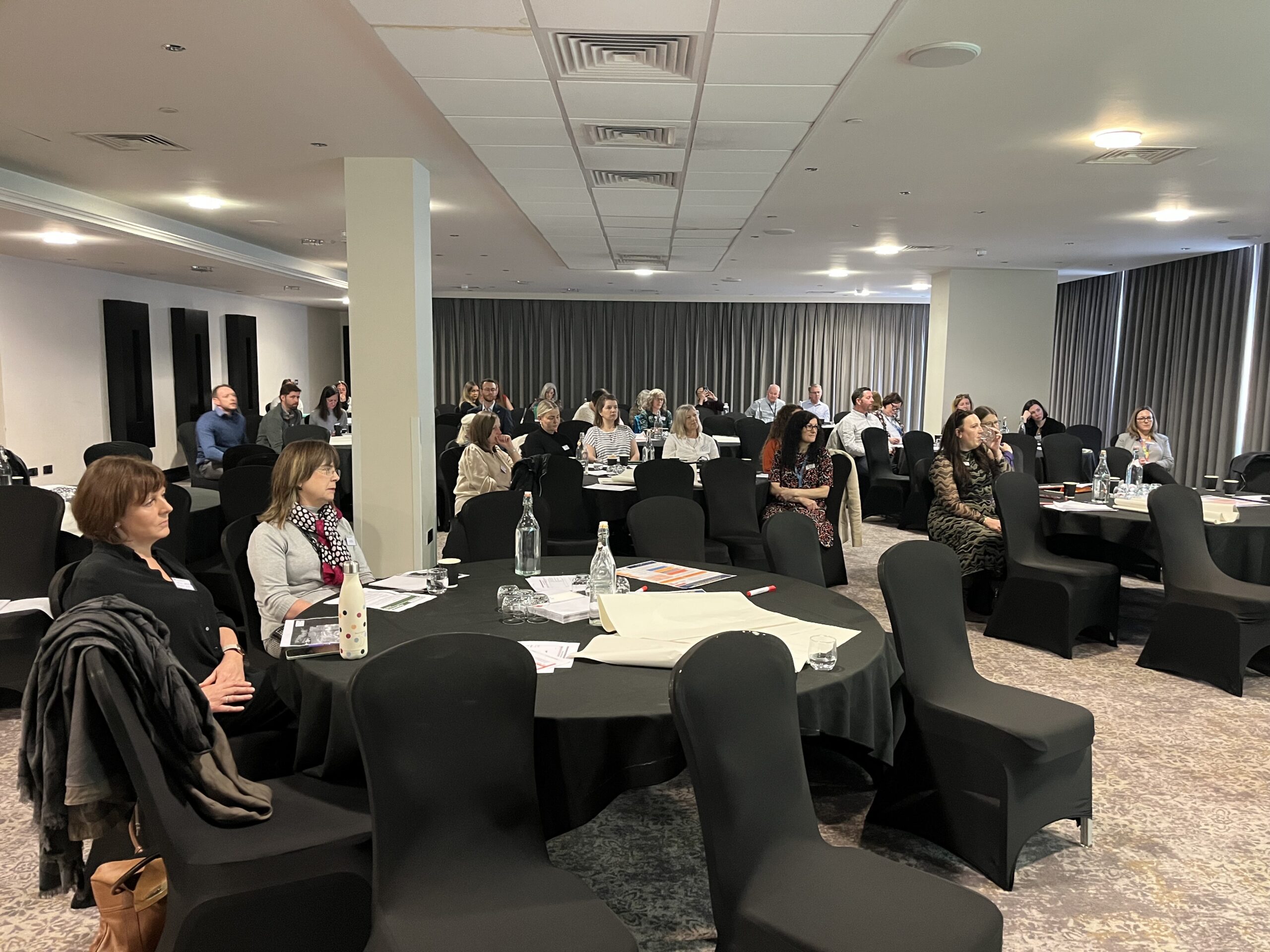
Other talks and discussions, including comments from audience members focused on digital requirements and developments. A once-for Wales approach was highlighted with regard to digital ways to capture, record and communicate decision-making. The ‘ACP Flag’ within Welsh Clinical Portal has, according to Dr Victoria Wheatley, a palliative care consultant from Hywel Dda, seen an exponential rise since its inception in 2017. This will be expanded with a team from DHCW, and will include a space to upload and label important forms, including those written by the patient themselves, such as an Advance Decision. This is particularly important, but perhaps made simpler in that NHS Wales has agreed forms, policies and standards with regard to Do Not Attempt Cardiopulmonary Resuscitation decisions, Advance Decisions to Refuse Treatment, Records of Best Interests Decisions and more general Advance Care Planning forms and guidance notes. The importance of Lasting Power of Attorney, soft preferences as well as discussing wills and organ donation were also flagged.
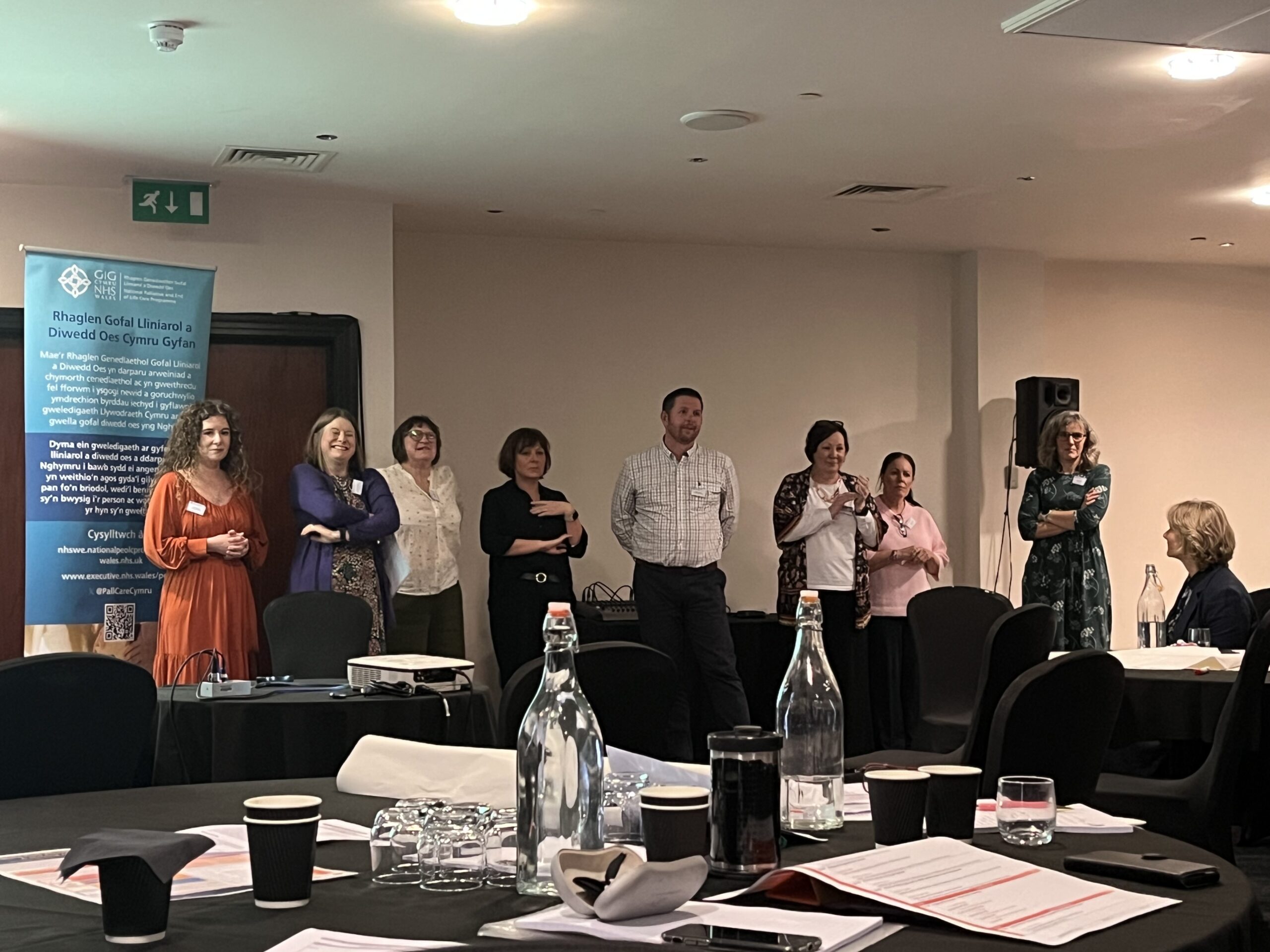
An all-Wales strategy has been published and a definition and ambition for Future Care Planning now exists, through a detailed research review and scoping exercise (PaCERS) conducted by the Marie Curie Research team in Cardiff. Delegates today heard the most recent proposed definition, based on a review of 27 international research and policy articles that include the term Future Care Planning, and agreed the following wording in principle:
“Future Care Planning (FCP) is an opportunity for an individual to work with health and social care professionals to consider ‘what matters’ to them in terms of their wellbeing and explore their wishes for any future care or support that the person may need. The latter includes Advance Care Planning at the appropriate time across the individual’s wellbeing journey, including thinking about end of life care.
FCP is relevant to every stage of life including those with diminished decision-making capacity at the time of information gathering and for whom a best interests approach should be followed. FCP can start from the time of a serious diagnosis onward, or at any other point in their care.”
Future Care Planning agreed as new national terminology:
Later in the day during an afternoon interactive workshop discussion with delegates, a reflection exercise took place which incorporated data gathering to inform future direction. A motion was proposed to switch from the transitional term “Advance and Future Care Planning”, to “Future Care Planning”, in line with the strategy envisaged by the last all Wales conference (see resources), the research scoping review on FCP presented earlier in the day, and also aligning with what NHS Scotland have already done. The motion was carried unanimously.
Prof Taubert, chair of the Advance & Future Care Planning Strategy Group for NHS Wales, who chaired the day-long event concluded: “We are now Future Care Plan Cymru, where what matters most to our patients and those close to them, comes at the forefront of all considerations.”
**ENDS**
Resources:
- National Future Care Planning Forms and policies: www.wales.nhs.uk/afcp
- Advance and Future Care Planning: Strategic approaches for Wales
- This event follows on from a national Future Care Planning day held in Wales several years ago and reported on here
- More recently, a Future Care Planning Big Conversation event was held at the end of 2024 in Cwmbran, which included data gathering from stakeholders
- Future Care Planning Research Scoping Review (& via QR code below)
